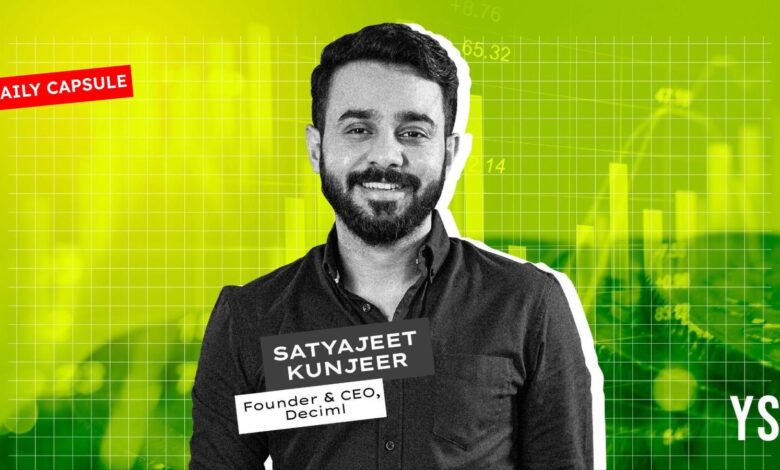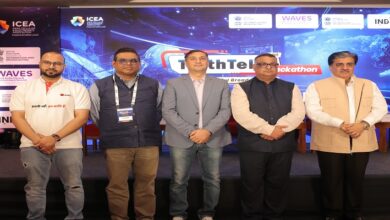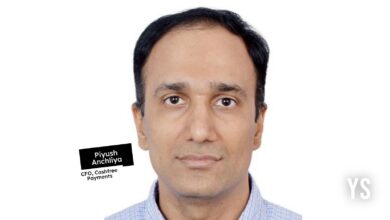Savings via micro-investments; Healing caste discrimination trauma

Hello,
“It’s a banana, Michael. What could it cost, ten dollars?”
Well, considering recent times, Lucille Bluth may not be too far off. From toy manufacturers to furniture suppliers, hundreds of business owners and managers are feeling the heat of economic turbulence brought forth by President Donald Trump’s tax regime.
To combat rising costs, a new charge is now making its way into invoices and receipts: the Trump Tariff Surcharge.
In the middle of all the chaos, consumer electronics can afford to breathe a little easier. The Trump administration granted exclusions from reciprocal tariffs to smartphones, computers and some other electronics imported largely from China.
In particular, this has been a saving grace for Apple as it moves closer to the production of the iPhone 17, which will be made primarily in China. In the meantime, the tech giant’s already making moves to diversify its production centres, having assembled $22 billion worth of iPhones in India in the 12 months ended March.
It’s not just Apple—global funds and investors are also looking at Indian assets as a relatively safe haven in the trade war, according to Bloomberg.
In the midst of chaos, there is also opportunity.
In today’s newsletter, we will talk about
- Increasing savings via micro-investments
- Healing caste discrimination-inflicted trauma
Here’s your trivia for today: Where was the Eiffel Tower originally going to be erected?
Startup
Increasing savings via micro-investments
While India is home to about 67 million young adults, this demographic is unprepared when it comes to financial discipline. According to a December 2024 report by Motilal Oswal, only 3% of Indians invest in mutual funds and SIPs,
To resolve this, Satyajeet Kunjeer found an opportunity to get Gen Z and millennials to start investing. Pune-based fintech startup Deciml, founded in 2020, helps users start their investment journey early on through micro-investments in mutual funds.
Early start:
- Once users download and register on the Deciml app, it integrates directly with their UPI. Every time a user makes a digital transaction—whether through UPI apps, debit or credit cards—Deciml rounds the amount to the nearest ten and invests the spare change in mutual funds.
- Available on iOS and Android, Deciml has garnered 3.5 lakh users since its inception—mostly adults in the age group between 23-27-year-olds from metros and Tier I cities.
- Deciml categorising investment options into three simple risk buckets: Low-risk (liquid and debt funds), Medium-risk (hybrid equity funds) and High-risk (equity funds). It has partnered with Navi Mutual Fund, which focuses on low-ticket-size investments. At present, Deciml offers two Navi mutual fund schemes.

Mental Health
Healing caste discrimination-inflicted trauma
New-age discourse around the mental health of marginalised communities is just beginning to account for the fact that caste-based discrimination doesn’t just live in systems; it is lodged deep within bodies, minds, and family histories.
The need of the hour is the availability of caste and trauma-informed therapy, which acknowledges the effects of systemic oppression on the nervous system and interpersonal dynamics, and explores ways to break the cycle of exclusion and structural neglect.
Culturally informed therapy:
- Caste and trauma-informed therapy acknowledges that, in order to survive the daily onslaught of dehumanisation or deprivation, older generations of historically oppressed communities (with fewer resources), often developed emotional numbness— not by choice, but as a defence mechanism.
- Not acknowledging and processing caste trauma can often lead to it being embedded in oneself, leading to emotional suppression, normalisation of pain and suffering, chronic anxiety, over-functioning, mistrust and emotional unavailability in communities that have faced systemic oppression.
- Therapy spaces are often unequipped to handle the complexities of caste discrimination. To combat this, Aswini Jeyaprakash and Preethi Shanmugapriya have been working on developing programmes on unlearning privilege—aimed at guiding allies from dominant caste identities toward deeper awareness and more sensitive support.
<figure class="image embed" contenteditable="false" data-id="570448" data-url="https://images.yourstory.com/cs/5/f9bdfa20c75811ed9569e5d19beae38b/CopyofImageTaggingnoframesEditorialTeamMaster16-1744399906382.png" data-alt="Deepa Pawar's Anubhuti Trust, a Thane-based NGO providing mental justice to youth from marginalised communities, has integrated advocacy, community healing practices, and systemic accountability in its programmmes, ensuring that care is accessible, relevant, and builds capacities within the communities they serve." data-caption="
Deepa Pawar’s Anubhuti Trust, a Thane-based NGO providing mental justice to youth from marginalised communities, has integrated advocacy, community healing practices, and systemic accountability in its programmmes, ensuring that care is accessible, relevant, and builds capacities within the communities they serve.
” align=”center”> Deepa Pawar’s Anubhuti Trust, a Thane-based NGO providing mental justice to youth from marginalised communities, has integrated advocacy, community healing practices, and systemic accountability in its programmmes, ensuring that care is accessible, relevant, and builds capacities within the communities they serve.
News & updates
- Acquisition: Buyout firm KKR & Co is nearing a deal to buy post-trade services firm OSTTRA, a joint venture controlled by CME Group Inc and S&P Global Inc for about $3 billion. Private equity firms including GTCR, as well as Advent International and CVC Capital Partners were pursuing OSTTRA.
- Joining hands: South Korean steelmaker POSCO is considering joining a project by Hyundai Steel to build a $5.8 billion plant in Louisiana as the country’s steel industry tries to respond to U.S. tariffs on the sector.
Where was the Eiffel Tower originally going to be erected?
Answer: Barcelona. The project was rejected because citizens thought it was an eyesore.
We would love to hear from you! To let us know what you liked and disliked about our newsletter, please mail nslfeedback@yourstory.com.
If you don’t already get this newsletter in your inbox, sign up here. For past editions of the YourStory Buzz, you can check our Daily Capsule page here.






